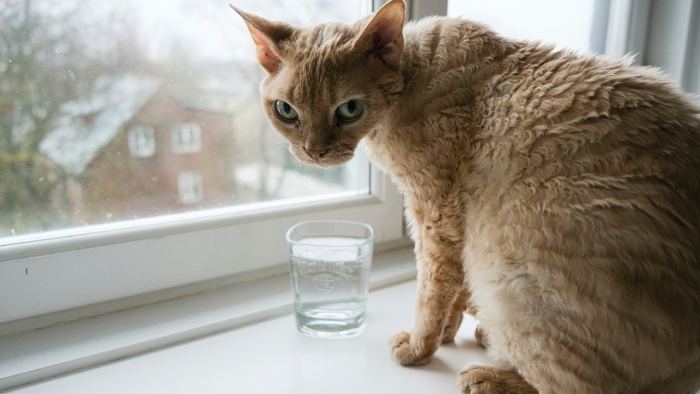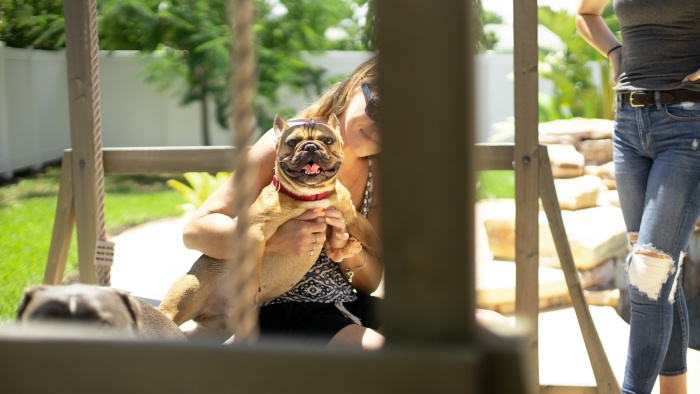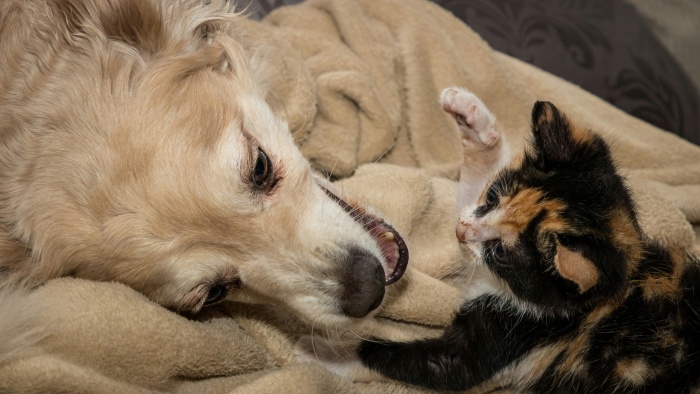7 Ideal Pet Care Tips

If you’re considering the ideal pet care for a furry companion in your life, keep reading for crucial animal care tips that simplify the process.
Caring for a pet isn’t overly complicated. The foundation of responsible pet ownership lies in understanding essential animal care tips.
Deciding to welcome a furry friend into your home means committing to a lifelong bond with a new member of your family. It’s important to recognize that your pet depends on you for their health and wellbeing.
The immense love and joy pets add to our lives more than compensate for the added duties of welcoming a fur baby into your home.
Let’s explore the fundamental aspects every devoted pet owner should know to keep your pet’s health and happiness in check.
The 7 crucial animal care tips for ideal pet care include
Provide them with wholesome and nutrient-rich diet
Just like us, pets require diets that cater to their specific nutritional needs. Diets for dogs are formulated to fulfill the dietary requirements of canines, while cat diets are designed to cater to the nutritional needs of felines.
Significantly, their nutritional demands differ vastly. Young puppies have different dietary needs compared to senior dogs. Pets with health conditions might need specialized diets.
Many pet owners are tempted to feed their pets scraps from the table. Yet, this practice is not advisable for the health and welfare of your pet. Human food, often containing salt, garlic, and onions, can be detrimental to your pet’s health, potentially leading to sickness or even fatality.
Remember to feed your pets the correct quantity of food. Feeding pets excessively or indulging them with too many treats can cause obesity, which in turn may result in heart disease, renal issues, and other serious health complications.
Measuring your pet’s food is the best approach to prevent these problems. Always consult with your veterinarian if you are uncertain about your pet’s dietary needs.
Ensure they have access to clean drinking water
Just like humans, pets need constant access to water to survive. Every pet in your care should have access to a bowl of clean, fresh water. Position it near their food bowl to make it easily accessible, and aim to refill your pet’s water bowl at least twice daily. Providing clean drinking water ensures your pet remains hydrated, healthy, and content.

For pets like fish or turtles, regular tank cleaning is crucial to prevent the odor associated with stagnant water. Unclean water can negatively impact the health of your aquatic pets.
Offer them a comfortable and secure living space
Cats face risks from cars, aggressive dogs, and predators, making it vital to keep them indoors for their safety. Most cats appreciate a secluded bed or a cave-like area indoors where they can hide and feel secure.
When letting your dog roam off-leash in your fenced yard, ensure they wear a microchipped tag and that the chip is registered with up-to-date contact information.
Always provide fresh water and shelter. Dogs also enjoy having their own bed inside the house, so provide a snug bed for them to rest and sleep in.
Pets need protection from extreme weather conditions, such as intense heat or cold, and should not be left outdoors indefinitely. Also, be aware of predators like coyotes, active both night and day, that may view your pets as prey. Protect your pets from such predators by adhering to these animal care tips.
Accommodate their need for bathroom breaks
Many pets can be toilet trained, allowing them to roam freely in the house without accidents. Cats should have at least one litter box available. Puppies may require bathroom breaks every one to two hours during the day.
The capacity of a dog to “hold it” varies by age; for instance, a three-month-old puppy might need a bathroom break every four hours. You can train older dogs to wait longer periods, or introduce them to doggy doors and potty pads.
Ensure the cleanliness of your pet’s bathroom area to prevent the accumulation of dirt and bacteria. Maintaining cleanliness is essential for their health and well-being.
Ensure your pets are physically active
Engaging in play is critical for any pet, whether it’s a dog, cat, turtle, or gerbil. All animals enjoy play, which is a fundamental aspect of their care, crucial for both their physical and psychological health.
Ever noticed your cat rummaging through the trash or your dog disarraying your couch? This isn’t bad behavior; rather, it’s a sign that your pet is bored.
Socialization also plays a key role in your pet’s well-being. Proper socialization skills can help your puppy or kitten bond with you and other animals.

Regular veterinary visits are essential
As a pet owner, it’s your responsibility to ensure regular veterinary visits. Given their shorter lifespans, dogs and cats should undergo a health examination at least once or twice a year.
Young pets might need to visit the vet more frequently to adhere to their vaccination schedules. Staying on top of vet appointments is vital to keeping your pet in good health.
Taking your pet to the vet might not always be straightforward, especially for cats, who often prefer the comfort of their familiar home surroundings. However, there are strategies to mitigate these challenges. For example, you can acclimate your cat to the carrier from kittenhood.
Dogs, on the other hand, generally enjoy car rides. Introduce your dog to the car gradually so they don’t associate car rides solely with vet visits. Many pets adjust well to visiting the vet, especially if you choose a veterinarian . That’s a good match for your pet.
Spay or neuter your pets
Sterilizing your pet can prevent numerous health issues, including complications related to pregnancy, and helps reduce the number of homeless animals. Studies have shown that spaying a female cat can prevent her from going into heat and decrease the risk of ovarian cancer.

Neutering male pets can lessen aggression and their tendency to roam, in addition to preventing testicular cancer over time.
Embarking on the journey of pet ownership is fulfilling and creates lasting memories. By adhering to the seven tips outlined above, you and your pet are set for a lifetime of joy.
Conclusion
Adhering to these seven critical tips for ideal pet care ensures a fulfilling and healthy life for both you and your furry companions.
By providing a balanced diet, clean water, a safe environment, proper toilet training, physical activity, regular vet check-ups, and considering the importance of spaying or neutering, you lay the foundation for their well-being.
Ideal pet care is not just about meeting the basic needs of your pets but about enriching their lives and strengthening the bond you share.
This journey of pet ownership, guided by these essential care tips, promises a rewarding experience filled with love, companionship, and countless joyful moments. Remember, the key to a happy and healthy pet starts with a committed and informed owner.
FAQs
How can I ensure my pet’s diet is balanced and nutritious?
To ensure your pet’s diet is balanced and nutritious, focus on providing a variety of foods approved by your veterinarian. Consider incorporating specially formulated pet foods that cater to your pet’s specific life stage, size, and any health conditions. Regularly review your pet’s dietary needs with your vet, as these can change over time.
What are some effective ways to keep my pet hydrated, especially in hot weather?
Keeping your pet hydrated, particularly during hot weather, involves more than just providing clean water. Consider adding wet food to their diet, creating ice treats, and setting up multiple water stations around your home and shaded areas outdoors. Always monitor your pet for signs of dehydration.
How can I make my home safer for my new pet?
Making your home safer involves pet-proofing by securing toxic substances, sharp objects, and small items that can be swallowed. Ensure windows and balconies are secure, and electrical cords are out of reach. Create a safe, comfortable space for your pet to retreat to when they need solitude.
What are some signs that my pet needs more exercise or mental stimulation?
Signs your pet may need more exercise or mental stimulation include destructive behavior, excessive barking or meowing, restlessness, obesity, and signs of boredom. Engage your pet in more interactive play sessions, introduce puzzle toys, and consider regular outdoor activities for physical exercise.
How can I prepare my pet for their first veterinary visit to minimize stress?
To prepare your pet for their first vet visit and minimize stress, familiarize them with their carrier or harness at home using positive reinforcement. Take short car rides that don’t end at the vet’s office to reduce car-associated anxiety. Bring their favorite toy or blanket to the visit for comfort, and choose a vet known for a gentle, pet-friendly approach.

